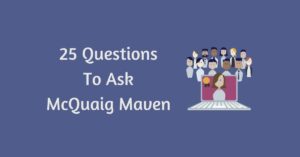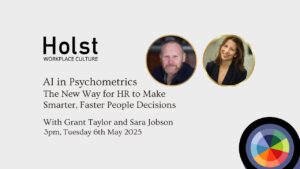The Great Resignation appears daily in the HR press headlines. The pressure is on organisations to optimise their internal and external recruitment strategies with hybrid working a top priority.

According to the Labour Force Survey, nearly 400,000 UK workers left their jobs for new ones in Q3 of 2021 alone. While some moves may have been unavoidable, it’s likely that many could have been prevented with stronger internal recruitment and succession planning strategies.
It’s proving a headache for external recruiters too. The pandemic has forced a workplace reset. We’ve all learnt to work differently – to be creative and collaborate in ways that are often more productive than in the pre-pandemic era. While burnout/boreout continues to be an issue for some, many of us are happier without a daily commute. Organisations and their recruiters may need to accept that hybrid working is here to stay and that candidates will require a different skill set in order to be successful in their roles.
We’re also seeing problems with the increasingly drawn out nature of the recruitment process. In recent research, 65% of employers globally reported they had lost their preferred candidate because of an overly lengthy hiring process. And, 50% of all UK professionals declined a job offer because the hiring process was too long. Proper use of the right assessments, which assess for the desired traits and skills will reduce the length of the process, encourage candidate engagement and develop create in the end result.
Skills for successful hybrid working
The most important skills for successful hybrid working are emotional intelligence, resilience and motivation. Emotional intelligence is fundamental to effective communication, teamwork and leadership, especially when co-workers are split between home and organisation offices. Motivation skills are crucial when working alone. And of course, resilience is paramount when facing setbacks and challenges.
In a recent Reed survey, 64% of hiring managers said that skills such as teamwork were important after the move to remote working, with larger companies (> 1,000 employees) more likely to value soft skills. 35% said remote working brought importance to soft skills more than ever.
These skills do not fit into traditional personality profiling. Tools such as McQuaig effectively identify and measure fixed traits. Recruiters and hiring managers are often experienced in looking for the personality traits needed for a role in their candidates. It’s also easy to identify ‘examinable’ skills such as Prince2 or CIPD qualifications, etc. However, it’s harder to measure and analyse the human skills which complete the picture and are conducive to job success. To do this takes a new approach to recruitment.
By sticking to a rigid, old-fashioned approach to recruiting, you could be discarding talent that could help fuel your growth plans in 2022.
Simon Wingate, managing director of Reed
Human skills for hybrid working recruitment
We’re not suggesting that recruiters throw out their existing job descriptions, specifications and profiles. But almost certainly recruiters and hiring managers should revisit them with the needs of hybrid working in mind. In review, your job profiles may need fine-tuning. Now is the time to add assessment for emotional intelligence, resilience and motivation to the mix.
“Even if they [organisations] were doing really great things and had developed a great recruitment and retention strategy, everybody’s had to look at those policies again. Expectations have changed, the market has changed, and it’s going to change again.”
Kate Shoesmith, deputy CEO at the Recruitment and Employment Confederation (REC).
The flowprofiler® Role Reviewer™ helps recruiters and hiring managers to engage in conversation, collaborate and identify the skills needed for success in a hybrid workplace. The flowprofiler® Role Reviewer™ document helps to facilitate a new approach to internal and external recruitment which goes beyond traditional personality testing.
Assess your candidates with flowprofiler® assessments to build a complete picture of where their strengths lie, both day to day and when working under pressure. Unlike personality traits, it’s important to remember that emotional intelligence, resilience and motivation skills can be developed and improved.
For instance, you might have a candidate who ticks nearly every box, except in their level of emotional and social intelligence. flowprofiler® helps you to open dialogue with your candidate to decide whether with training and coaching, you can support their development in the role. Alternatively, you might have a candidate who lacks experience, but meets your needs in terms of their human skills and they have the aptitude to quickly learn ‘on the job’. flowprofiler® gives you valuable insights without which can easily result in a failed hire or dismiss a potentially great candidate.
Hybrid working - opportunity for recruitment
While we still face pandemic-related challenges, it has thrown up a great opportunity to enhance recruitment processes and practice. It’s an exciting time to take advantage of new tools that help recruiters and hiring managers to make important hiring decisions better than ever before, reduce the cost of employee turnover and make a hybrid workplaces great environments to be part of.
Read more in the hybrid working series
Meet Vicky Thornley - The Latest Recruit to Our Hybrid Working Team
Vicky won a silver medal for Team GB with Katherine Grainger in the women’s double sculls at the 2016 Summer Olympics. She was a member of the GB team that finished fifth in the women’s eight at the 2012 Summer Olympics, and fourth in the single sculls at the 2020 Summer Olympics. Read More.
Contact us to learn more
flowprofiler® and associated marks are registered trademarks of Chalmers International Limited | All rights reserved
eqflow® and associated marks are registered trademarks of Chalmers International Limited | All rights reserved
resilienceflow® and associated marks are registered trademarks of Chalmers International Limited | All rights reserved
motivationflow® and associated marks are registered trademarks of Chalmers International Limited | All rights reserved








